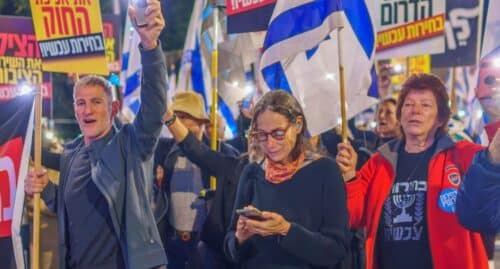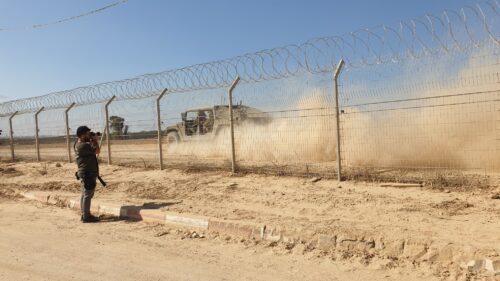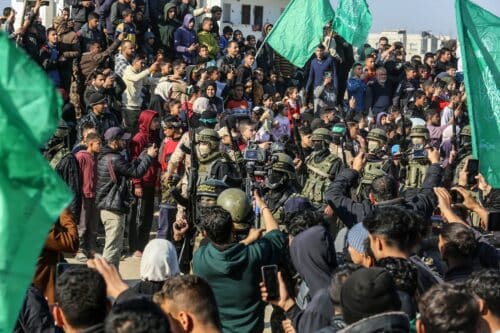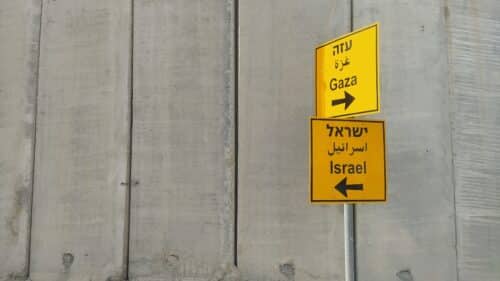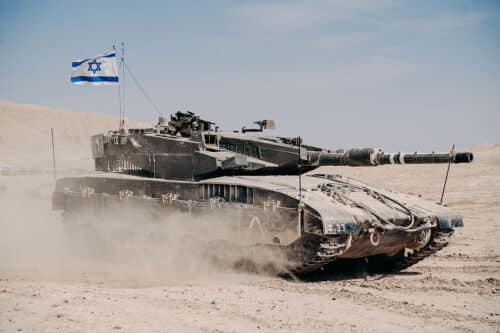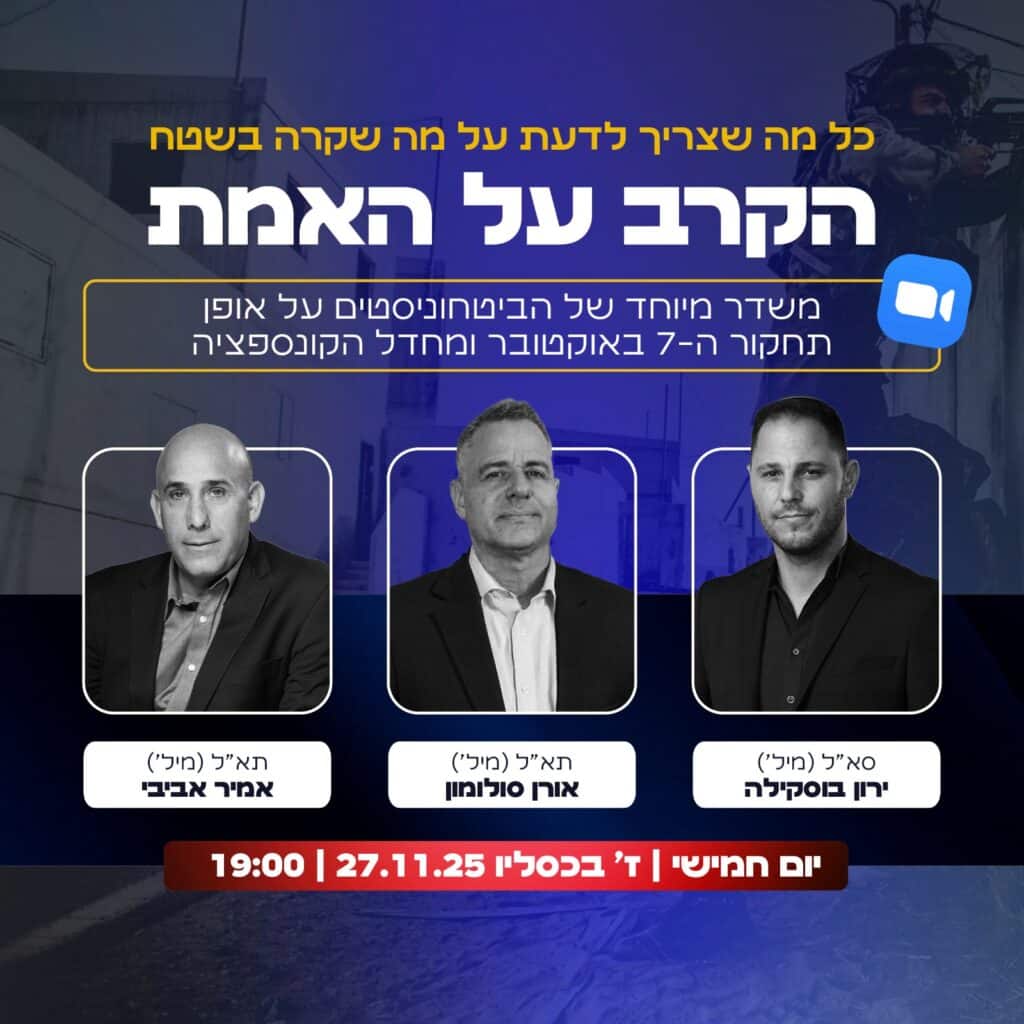Born in 1945, Moshe Peled — a colonel in the reserves and former Knesset member —has seen a thing or two in the State of Israel. He made time for an interview with us after a shift as a driver transporting tanks to the south. His military career began in the paratroops, and after fighting in the Six Day War and crossing the Suez Canal in the Yom Kippur War, he transferred to the armored corps where he served as commander of the 77th Battalion, deputy commander of the 7th Brigade, and commander of the 847th Brigade, among other positions.
“Morale in the field is high, but public protests could damage it”
He started driving a tank transporter 31 years ago, after retiring as commander of the armored 847th Brigade. “I felt I still was young and could make a contribution. On the day I handed the keys to my replacement, I went down to the transport center, took two lessons, and headed straight off for my driving test. That same day, I became a driver for tank transporters. And since then, I do 35 days of reserve duty a year and I like it a lot.”
How is the soldiers’ morale in the field? Do they perceive that the public is backing them?
In the field, morale among the soldiers is very high. They want to fight this war and win it. They’re not daunted. High morale among the Israel Defense Forces is no surprise to me. What I was happy to see was a determination that I hadn’t seen for a long time. The IDF is more determined, the IDF is more decisive, and it wants a clear victory.
Lots of Israelis consider that their reserve duty is part of themselves. I’ll tell you something: When I was a Knesset member, I received a call-up, and the speaker of the Knesset at the time, Shevach Weiss, wouldn’t let me go serve. I told him, “I’m willing to quit the Knesset, but I’m not quitting the reserves.” Finally, he allowed me to serve but only when the Knesset was in recess. Two weeks around Rosh Hashana and two weeks around Passover. That was my reserve duty for eight years. Even today, you can see Knesset members in uniform out in the field. The problem is that there are protest groups always trying to come between the IDF and the government, or between the IDF and the public. I think it’s disgraceful.
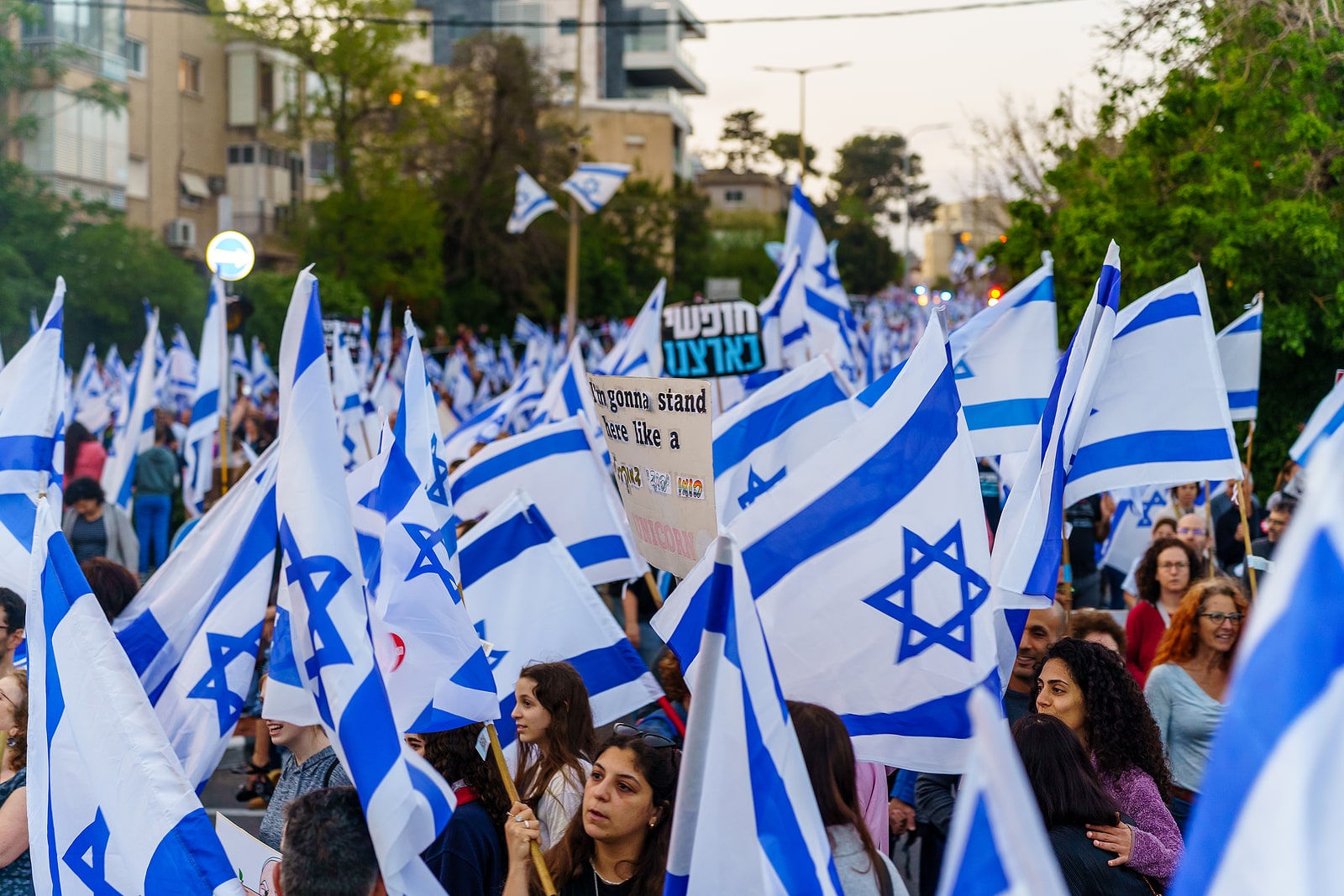
Is it wrong to voice criticism, or to apply the kind of pressure coming from the hostages’ families?
The hostages’ families themselves have to do what they have to do. I understand their tremendous pain and their impossible situation, and there’s justification for their protesting. My problem is with the protest groups that enlist the bereaved families and divert those families’ grief to political purposes. Such protest groups are coldheartedly exploiting the hostages’ families, and that plays into the hands of Hamas. That’s what Hamas wants: a campaign of pressure. And with all the hardship involved, at this point, we have to take a deep breath because it’s going to be an exhausting long haul.
And what about the families that may have lost faith in the government and in the current attempts by negotiators?
Some of them really do mistrust the government and the negotiators, and that’s understandable because of the colossal failure on the Sabbath of Simchat Torah. But there is trust from others. In any case, the grief and pain on the families’ part should not be exploited politically. That weakens the state and weakens the struggle against Hamas. To Hamas, which party you voted for means less than nothing. What will happen to the fighters’ morale if during the war there’s pressure that changes the makeup of the government materially? In wartime you provide support — to the army and to the government — and it doesn’t matter which political side you’re on. Everyone should have the same purpose: to bring down Hamas and to free the hostages.
That said, how do you think the families can keep the issue on the agenda?
I don’t want to play advisor to the families, and they’re certainly entitled to demonstrate and protest. I only want to emphasize that bringing home the hostages is a top priority anyway. The army isn’t charging ahead blindly, it’s advancing step by step. The army searches, it sends out feelers, and it investigates: What are the hostages’ locations? What are the hiding places? That needs to be done cautiously. Planned precisely. The families need to trust the fighters who are in the field; it’s those fighters who have the greatest chance of bringing the hostages home. The country needs to coordinate two efforts here, and form a relation of trust toward the team that deals with the matter of the hostages. I hope that Gal Hirsch is investing a lot of thought in rebuilding trust. The two efforts need to go hand in hand.
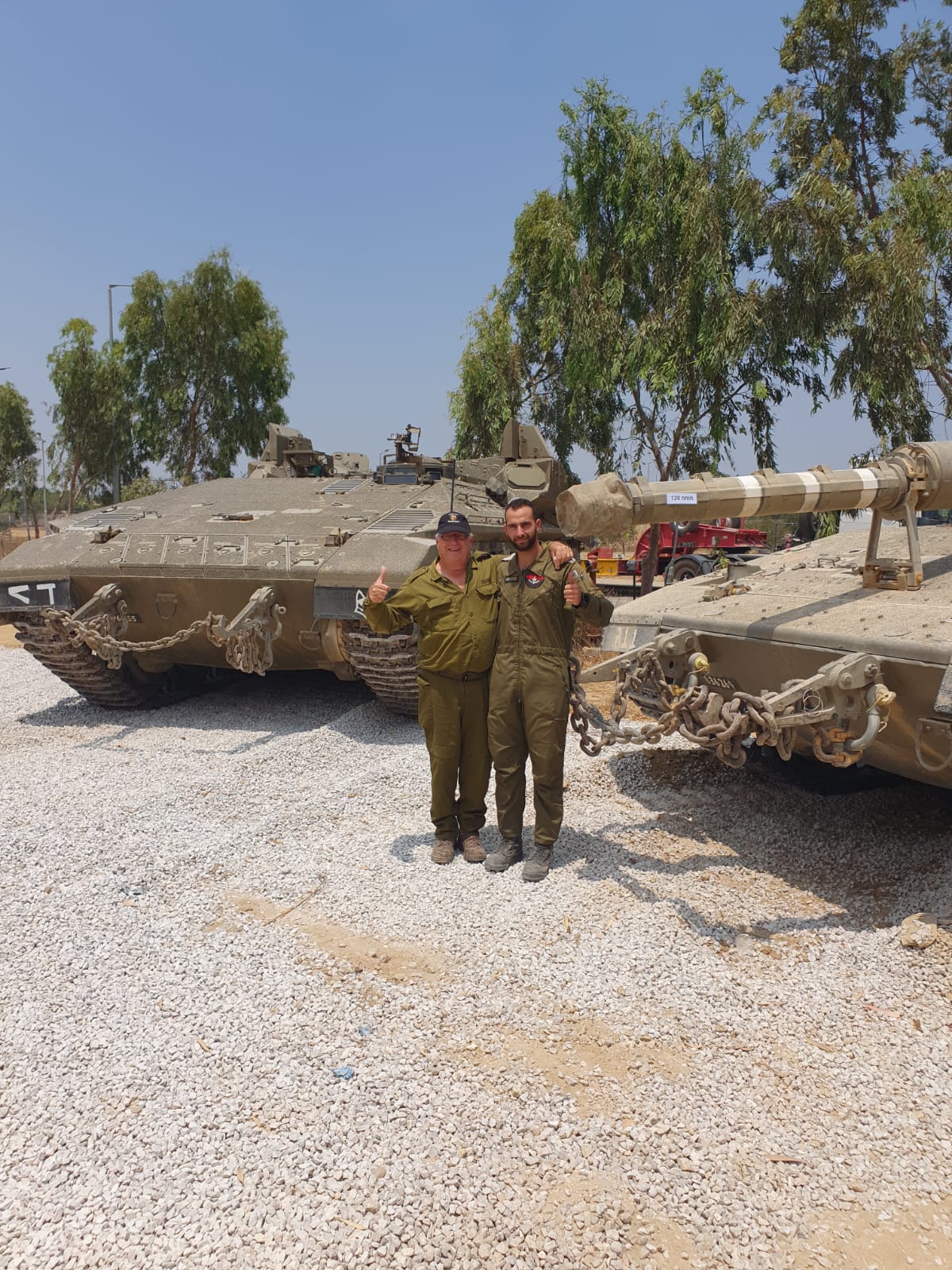
A look toward the future: “Security — our responsibility alone”
Peled has a firm doctrine regarding how to fight terrorism, and an essential aspect of it is the unreliability of physical barriers — including fences, no matter how smart they are. “Against terror, you fight outside the fence. You don’t hunker down behind the fence. A fence is only a tool in the war against terror. The warfare doesn’t consist of the fence. The terrorists must be aware that they can’t sleep two nights in the same bed, that they have to stay on the run.”
Another shortfall that Peled points up is the weakening of the institution of community emergency squads: “They told the squads, ‘We have a good army division in the field, and so the communities are protected.’ Today it’s clear that each community needs an emergency squad. And by now, within only three weeks, more than 800 emergency squads have been set up in communities all over Israel.”
At the governmental level, he sees a number of errors. One was the mistaken idea that financial support would turn terror organizations peaceful. In fact, the money was spent on terrorism. Another error was allowing Hamas to carry weapons (“We always had the slogan ‘Don’t give them rifles’”). And there was the reliance on outsiders to preserve our interests. “We can’t depend on anyone. Just look at the UN forces in Lebanon, and how the Americans behave in their wars.”
So what would your solution be for Gaza on the day after Hamas?
My solution is to take responsibility. Responsibility for our lives. For our security. Security must be our responsibility alone, and they can be responsible for municipal affairs — education, landscaping, and so on. The starting point, after Operation Iron Swords, should be that Gaza has no Hamas at all and we have complete responsibility for security and governance. But along with that, an international project should enable industry and agriculture to be established there.
Isn’t that reminiscent of what’s going on in Judea and Samaria?
In my opinion, the horror story that played out in Gaza is just a preview of what we can expect in Judea and Samaria as well, if Israel continues thinking in terms of two states. We can imagine now what would happen if what we saw in Gaza came about in Judea and Samaria. The Palestinians would sit on the ridges and shoot at Kfar Sava, Raanana, and Tel Aviv. From the security standpoint — leaving aside the standpoint of Jewish history — whoever is sitting on the high ground controls the entire Land of Israel, and whoever isn’t sitting there might as well not be here.”
Photo credit: Moshe Peled

